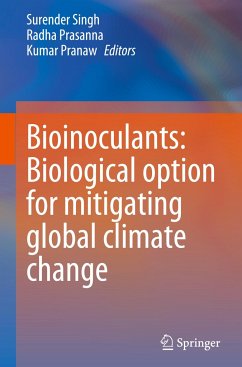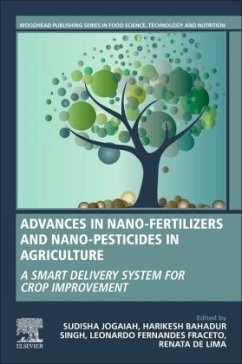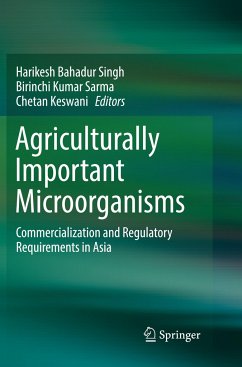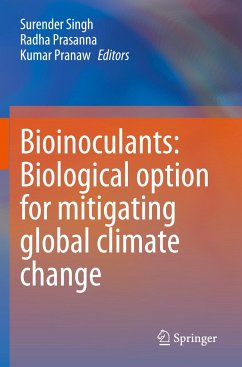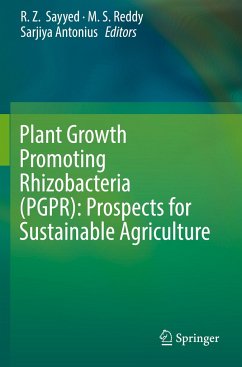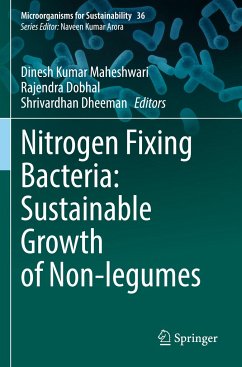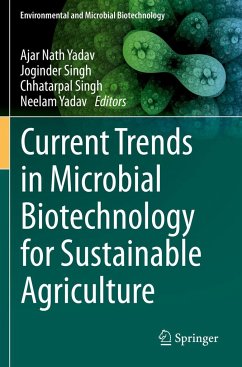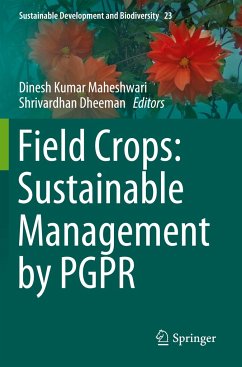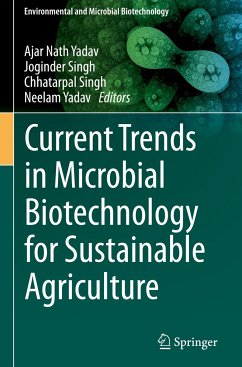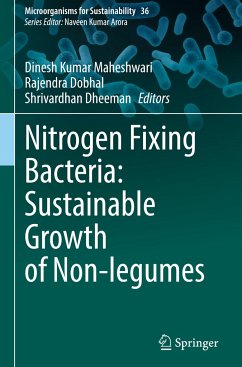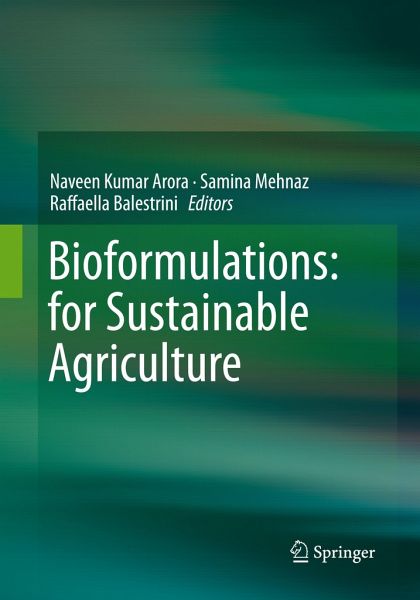
Bioformulations: for Sustainable Agriculture
Versandkostenfrei!
Versandfertig in 6-10 Tagen
113,99 €
inkl. MwSt.

PAYBACK Punkte
57 °P sammeln!
More than a century has passed since the first bioformulations were introduced to the market. But there is still much to be done, explored and developed. Though bioformulations offer green alternatives and are important for sustainable agriculture, they make up only a small fraction of the total additions used to enhance crop yields or protect them from pests. There is a great need to develop bioformulations that can promote confidence among end users; accordingly, it is imperative that bioformulations to replace chemicals be reliable and overcome the shortcomings of the past.Bioformulations: ...
More than a century has passed since the first bioformulations were introduced to the market. But there is still much to be done, explored and developed. Though bioformulations offer green alternatives and are important for sustainable agriculture, they make up only a small fraction of the total additions used to enhance crop yields or protect them from pests. There is a great need to develop bioformulations that can promote confidence among end users; accordingly, it is imperative that bioformulations to replace chemicals be reliable and overcome the shortcomings of the past.
Bioformulations: for Sustainable Agriculture discusses all the issues related to the current limitations and future development of bioformulations. It examines in detail those bioformulations that include biofertilizers and biopesticides (also commonly known as bioinoculants), presenting a global picture of their development. Further chapters address diverse microbes that are already being orcould be used as bioformulations. The book also discusses the techniques, tools and other additions required to establish bioformulations as trustworthy and global solutions. It assesses the types of bioformulations currently available on the market, while also considering the future roles of bioformulations, including the reclamation of marginal and polluted soils. Further, it discusses the current legislation and much-needed amendments. Overall the book provides a comprehensive outlook on the status quo of bioformulations and the future approaches needed to improve them and achieve sustainable agriculture and food security without sacrificing the quality of soils. This will be extremely important in offering chemical-free foods and a better future for generations to come.
Bioformulations: for Sustainable Agriculture discusses all the issues related to the current limitations and future development of bioformulations. It examines in detail those bioformulations that include biofertilizers and biopesticides (also commonly known as bioinoculants), presenting a global picture of their development. Further chapters address diverse microbes that are already being orcould be used as bioformulations. The book also discusses the techniques, tools and other additions required to establish bioformulations as trustworthy and global solutions. It assesses the types of bioformulations currently available on the market, while also considering the future roles of bioformulations, including the reclamation of marginal and polluted soils. Further, it discusses the current legislation and much-needed amendments. Overall the book provides a comprehensive outlook on the status quo of bioformulations and the future approaches needed to improve them and achieve sustainable agriculture and food security without sacrificing the quality of soils. This will be extremely important in offering chemical-free foods and a better future for generations to come.



